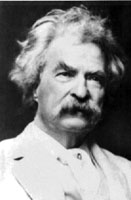From A Dish of Orts: Chiefly papers on the imagination, and on Shakespere (Enlarged edition), 1895.
That we have in English no word corresponding to the German Mährchen, drives us to use the word Fairytale, regardless of the fact that the tale may have nothing to do with any sort of fairy. The old use of the word Fairy, by Spenser at least, might, however, well be adduced, were justification or excuse necessary where need must.
Were I asked, what is a fairytale? I should reply, Read Undine: that is a fairytale; then read this and that as well, and you will see what is a fairytale. Were I further begged to describe the fairytale, or define what it is, I would make answer, that I should as soon think of describing the abstract human face, or stating what must go to constitute a human being. A fairytale is just a fairytale, as a face is just a face; and of all fairytales I know, I think Undine the most beautiful.
Many a man, however, who would not attempt to define a man, might venture to say something as to what a man ought to be: even so much I will not in this place venture with regard to the fairytale, for my long past work in that kind might but poorly instance or illustrate my now more matured judgment. I will but say some things helpful to the reading, in right-minded fashion, of such fairytales as I would wish to write, or care to read. [Read more…]










Recent Comments